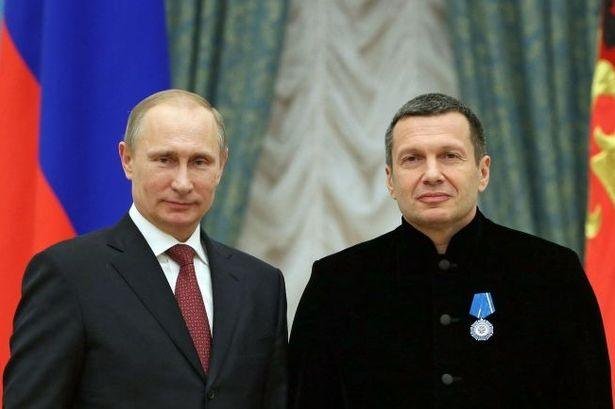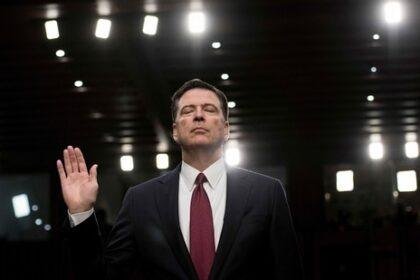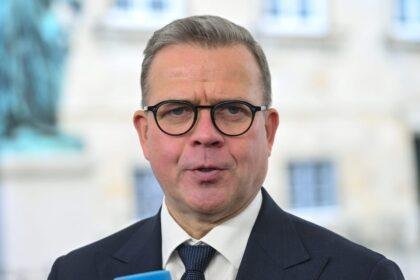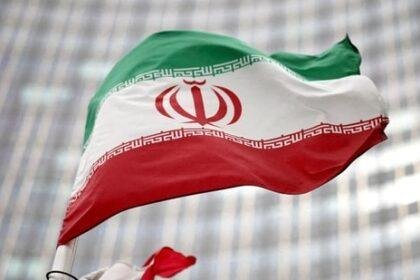Kremlin Propagandist’s Threats Against the UK Heighten Global Tensions
In a recent broadcast that has sent shockwaves through international relations, Vladimir Solovyov, a prominent Russian state television host and staunch supporter of President Vladimir Putin, made alarming statements regarding the United Kingdom. During his show, “Sunday Evening With Vladimir Solovyov,” he referred to Britain as a “satanic island” and suggested that Russia should “burn down” the nation. This incendiary rhetoric has reignited fears of escalating tensions reminiscent of the Cold War era.
Context of the Threat
Solovyov’s comments come at a time when geopolitical tensions are already high due to the ongoing conflict in Ukraine. The war, which began in February 2022, has seen Russia facing off against Ukraine with significant support from Western nations, including the UK and the United States. The Kremlin has consistently framed its military actions as defensive, portraying the West as the aggressor. Solovyov’s remarks reflect this narrative, as he downplayed recent incursions by Russian fighter jets into NATO airspace, instead blaming the West for escalating the situation with military support to Ukraine.
The Role of Tomahawk Missiles
During the broadcast, military expert Evgeny Buzhinsky discussed the potential use of Tomahawk missiles by Ukraine, which can strike targets deep within Russian territory. These missiles, with a range of approximately 2,500 kilometers, have become a focal point in discussions about military aid to Ukraine. Ukrainian President Volodymyr Zelensky has actively sought the acquisition of these missiles from the United States, emphasizing their strategic importance in countering Russian aggression.
In response to Buzhinsky’s comments, Solovyov’s threat against the UK was particularly striking. He stated, “To Europe, it seems like everything is permitted,” suggesting that the West’s military support for Ukraine justifies a retaliatory stance from Russia. This rhetoric is not merely bluster; it reflects a broader strategy of intimidation that the Kremlin has employed to deter Western involvement in the conflict.
Historical Parallels
The language used by Solovyov echoes sentiments from previous global conflicts, particularly during the Cold War when both the United States and the Soviet Union engaged in a war of words that often escalated into military posturing. The use of terms like “satanic” to describe a nation is reminiscent of the ideological battles fought between capitalism and communism, where each side sought to demonize the other.
Moreover, Solovyov’s comments about the UK being a “satanic island” can be seen as an attempt to rally domestic support by framing the West as morally corrupt. This tactic has historical roots in Russian propaganda, which has often portrayed Western nations as decadent and morally inferior.
The Church of England and Symbolism
Interestingly, Solovyov’s remarks also referenced the recent appointment of Sarah Mullally as the next Archbishop of Canterbury, marking the first time a woman has held this position. He used this development to further his argument, suggesting that the UK’s leadership is emblematic of a broader moral decline. This intertwining of religious symbolism with geopolitical threats adds a layer of complexity to the situation, as it taps into cultural narratives that resonate with certain segments of the Russian population.
Responses from the West
The West has largely condemned Solovyov’s statements, viewing them as part of a broader pattern of aggressive rhetoric from the Kremlin. NATO officials have reiterated their commitment to collective defense, emphasizing that any attack on a member state would trigger a unified response. The UK government has also expressed concern over the escalating threats, with officials stating that such rhetoric is unacceptable and counterproductive to peace efforts.
Former U.S. President Donald Trump, when asked about the potential supply of Tomahawk missiles to Ukraine, indicated a cautious approach, stating he would seek to understand their intended use before making a decision. This reflects a broader sentiment among Western leaders who are wary of escalating the conflict further.
The Broader Implications
Solovyov’s comments are not just isolated threats; they represent a significant shift in the Kremlin’s narrative and strategy. By openly discussing the possibility of attacking the UK, the Russian state media is attempting to normalize aggressive rhetoric and military posturing. This could have far-reaching implications for international relations, particularly as NATO continues to bolster its defenses in Eastern Europe.
The potential for miscalculation is high, as both sides engage in a dangerous game of brinkmanship. The rhetoric from Russian state media serves to heighten fears of a broader conflict, reminiscent of the tensions that characterized the Cold War. As nations navigate this precarious landscape, the need for diplomatic channels and dialogue becomes increasingly urgent.
Conclusion
Vladimir Solovyov’s recent threats against the UK have underscored the fragile state of international relations in the wake of the ongoing conflict in Ukraine. His incendiary remarks reflect a broader strategy of intimidation employed by the Kremlin, aimed at deterring Western support for Ukraine. As the world watches these developments unfold, the potential for escalation remains a pressing concern. The need for diplomatic engagement and a commitment to peace has never been more critical in ensuring that history does not repeat itself.










